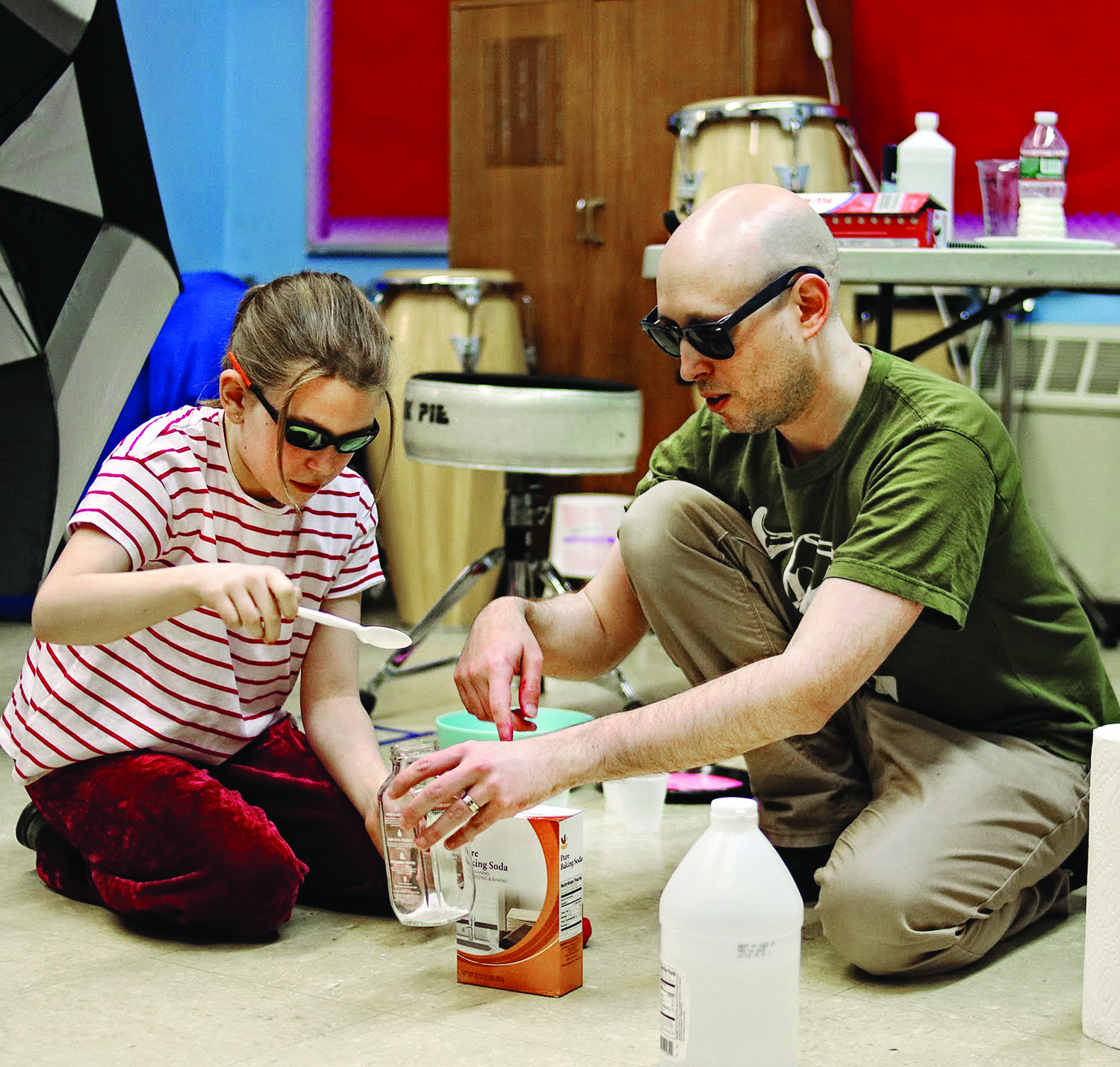STEAM Splash a smash hit
On April 12-13, the Jewish Community Day School of Rhode Island opened its doors to students from Brown University and the Rhode Island School of Design, parents, grandparents, and other community members, all of whom created STEAM-oriented workshops for JCDSRI’s STEAM Splash event.
STEAM stands for Science, Technology, Engineering, Art and Math, and the workshops highlighted the relevance of each subject, as well as important overlaps among the subjects.
Students were freed from their usual schedule to participate in three or four STEAM workshops over the course of the two days. The workshops’ leaders, with support from JCDSRI teachers, enjoyed teaching the students about their passions and engaging them in hands-on ways. In turn, the students enjoyed learning more about STEAM.
In addition to the workshops, most students were able to visit the incredible RISD Nature Lab. The students were enthralled by the thousands of specimens – both living and otherwise – on display, and eagerly practiced their scientific drawing skills.
Here are just a few more highlights from STEAM Splash:
Baby Goats, Mammals and Milk: Rabbi Aaron Philmus, of Temple Torat Yisrael, in East Greenwich, brought in his 3-month-old kids (goats!) to help teach about the natural miracle that is “mama’s milk.” The students participated in cheese- and ice-cream-making demonstrations (with taste tests, of course!) and compared what mammals produce to feed their offspring with the obscure ingredients found in milk substitutes. They learned about goat behavior by practicing herding, and made scientific observations in their notebooks. An additional perk of this workshop was all the cuddles that were shared.
Magic Show Using Scientific Principles: Roey Tzezana wowed the students with his bag of tricks. Many of the tricks he performed taught scientific principles, such as chemical reactions, fire behavior and surface tension. He demonstrated these by setting a $20 bill on fire (after dousing it in alcohol), “eating” fire, and adding a drop of soap to a full cup of water.
Biomimicry: Brown University students Katya Scocimara and Zoe Phillips shared their knowledge of biomimicry and design. Biomimicry is the practice of observing nature’s adaptations and behaviors and using those observations to solve design challenges. The students learned about real-world examples of biomimicry and then tried their hand at designing, based on the movements of jellyfish and/or snakes. The kids had a blast building and trying out their designs.
Aquaponics: RISD students Qianyi Zhang and Danny Lee taught about the nitrogen cycle, showcasing the JCDSRI Design Lab’s newest addition, an aquaponics system. Fish waste from the lower tank is converted to nitrates by bacteria and then pumped up to a “growing bin” to feed plants. The plants filter the nutrients out of the water, and then clean water is returned to the fish tank.
The students learned how to test for water quality, transplanted plants into the upper bin, and drew their own interpretations of the aquaponics cycle.
DNA and Microscopy: Kristin Rosler, a professor at Johnson & Wales, taught the basics of evolution through the extraction of strawberry DNA. Students crushed up strawberries and poured their juice into a test tube. Then they added a small amount of soap, which further breaks down cell walls and allows access to the DNA. When cold alcohol was added to the juicy solution, the DNA precipitated out and became visible to the naked eye. The tangled-up strands floating in the alcohol looked a bit like saliva, but it was actually strawberry DNA!
Rosler also brought microscopy slides for the students to observe, providing some students with their first experience with microscopes.
TIFERET ROSE is the Design Lab (TikkunXDesign) teacher at the Jewish Community Day School of Rhode Island, in Providence.








